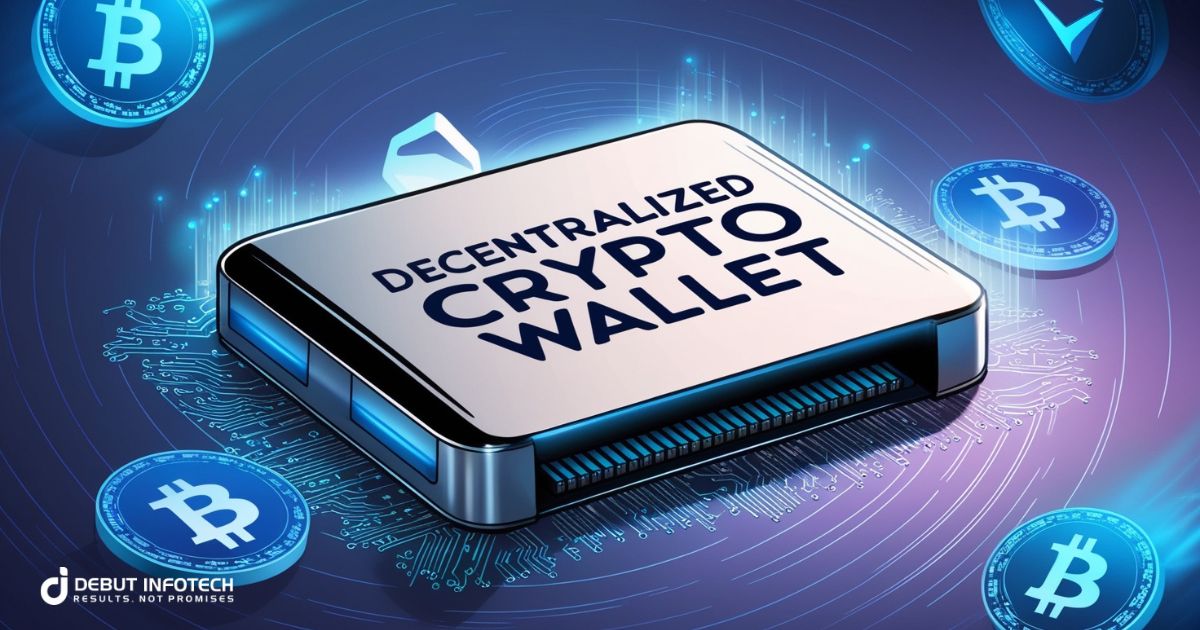Introduction
Decentralized wallets are at the core of blockchain technology with decentralized ethos. With these wallets, users can store, send, receive, and manage cryptocurrencies securely, without the need for an intermediary. The ownership and security of funds rest solely with the individual, promoting privacy, autonomy, and control.
What is a Decentralized Wallet?
A decentralized wallet, often called a non-custodial wallet, is a type of cryptocurrency wallet that allows users full control over their funds and private keys. Unlike centralized wallets managed by third-party services, decentralized wallets operate without a central authority. This makes them a vital tool for anyone wanting to engage in the crypto world while maintaining complete ownership of their assets.
How Decentralized Wallets Work
Decentralized wallets operate using public and private keys. The public key acts as an address for others to send funds to, while the private key serves as the access point to your funds. It's important to note that if you lose your private key, you lose access to your wallet permanently, as there is no third party to recover it.
Key Features of Decentralized Wallets
- Full Control Over Funds: Users are the sole owners of their funds, with no intermediary holding the private keys. This ensures autonomy and reduces the risks of hacking or loss due to the failure of a third-party service.
- Security and Privacy: Decentralized wallets provide enhanced security since users’ private keys are never shared with or stored by any entity. Additionally, users are not required to submit personal data or undergo KYC (Know Your Customer) processes, preserving their privacy.
- Access to DeFi: Decentralized wallets are essential for interacting with decentralized finance (DeFi) protocols. They allow users to seamlessly access services like lending, borrowing, staking, and trading within the decentralized ecosystem.
- Compatibility Across Blockchain Networks: Many decentralized wallets support multiple blockchain networks. This allows users to manage various types of cryptocurrencies, from Bitcoin and Ethereum to smaller altcoins and tokens, all in one place.
- Open-Source Technology: Most decentralized wallets are built using open-source software, meaning anyone can audit the code. This transparency fosters trust, as users can be sure that there are no hidden backdoors in the wallet’s code.
Types of Decentralized Wallets
There are several types of decentralized wallets available, each with its level of security and ease of use:
- Software Wallets: These are the most common type of decentralized wallets and can be downloaded onto a computer or smartphone. Examples include MetaMask, Trust Wallet, and Exodus. These wallets are easy to use but slightly more vulnerable to malware or phishing attacks if the device is compromised.
- Hardware Wallets: Hardware wallets, like Ledger Nano S and Trezor, are physical devices that store private keys offline. They are considered the most secure option because they minimize the risk of hacking. However, they are less convenient for frequent transactions.
- Paper Wallets: A paper wallet is a physical document that contains your public and private keys. This method is rarely used now, as it lacks the convenience and flexibility of other wallet types, but it remains one of the most secure methods if kept properly.
Benefits of Using Decentralized Wallets
- Complete Ownership and Control: Decentralized wallets give users full control over their assets. Unlike centralized exchanges or wallets, where funds can be frozen or lost due to hacks, decentralized wallets eliminate this risk.
- Enhanced Security: Since private keys are never stored online or with a third party, decentralized wallets offer a higher level of security. They are immune to centralized exchange hacks or data breaches.
- Global Accessibility: Decentralized wallets enable users to access their funds from anywhere in the world, as long as they have an internet connection. There are no restrictions or barriers set by third parties.
Potential Drawbacks
While decentralized wallets offer many advantages, they also have some potential downsides:
- Responsibility for Security: Users are fully responsible for the security of their private keys. If the private key or seed phrase is lost, there is no way to recover the funds. This responsibility can be intimidating for new users.
- Less User-Friendly: Decentralized wallets may be less intuitive and harder to use than centralized wallets, especially for beginners. Managing private keys and navigating DeFi protocols can be complex.
- No Customer Support: Since decentralized wallets don’t involve a third-party service, users can’t rely on customer support if they encounter issues or forget their private key.
Read also this blog on The Ultimate Guide to Decentralized Cryptocurrency Wallets.
Decentralized Wallets and the Future of Finance
Decentralized wallets are a key component of the broader movement towards decentralized finance (DeFi). As blockchain technology and cryptocurrencies continue to grow, decentralized wallets are becoming increasingly essential for users who want to engage in this ecosystem while maintaining full control over their assets.
Conclusion
A decentralized wallet empowers users to take control of their financial future. By giving full ownership of assets to individuals and enabling them to access the decentralized economy, these wallets represent a new way of interacting with cryptocurrencies and blockchain technology. Whether you're a beginner in the crypto world or a seasoned investor, using a decentralized wallet can offer more security, privacy, and freedom in managing your digital assets.






Comments